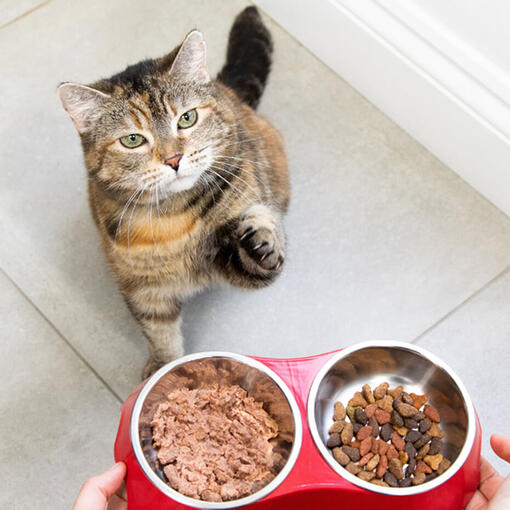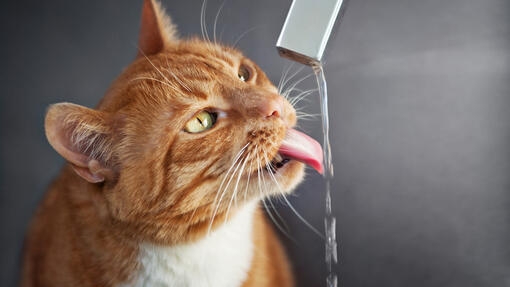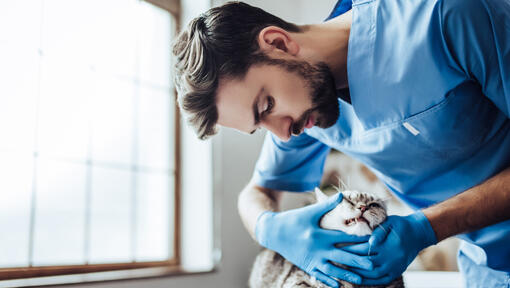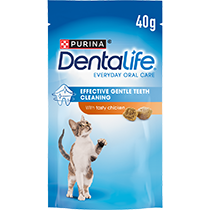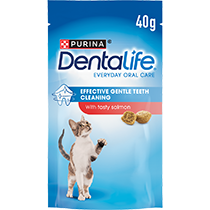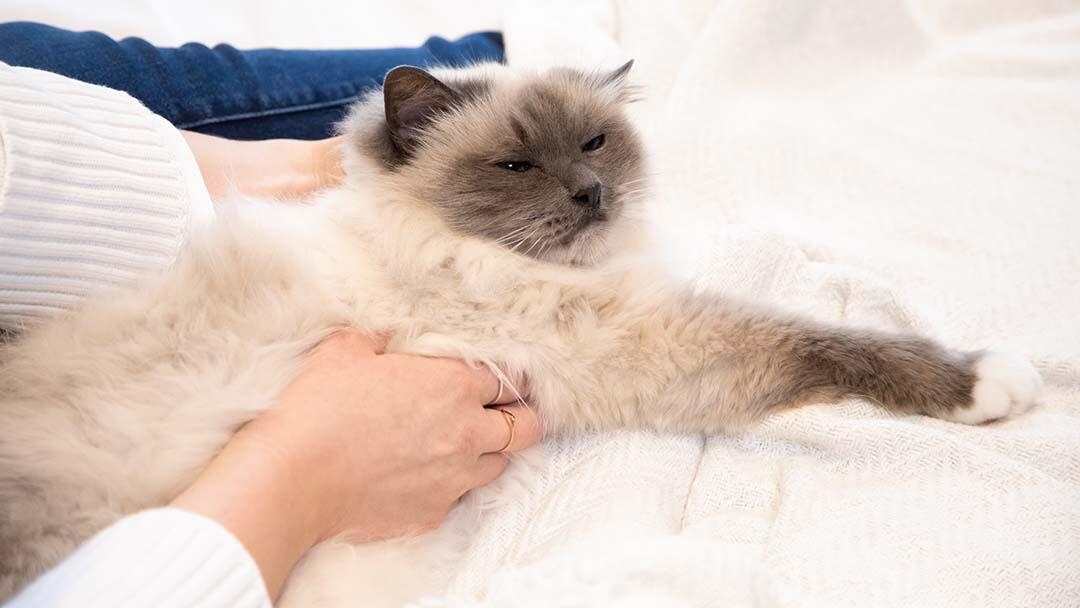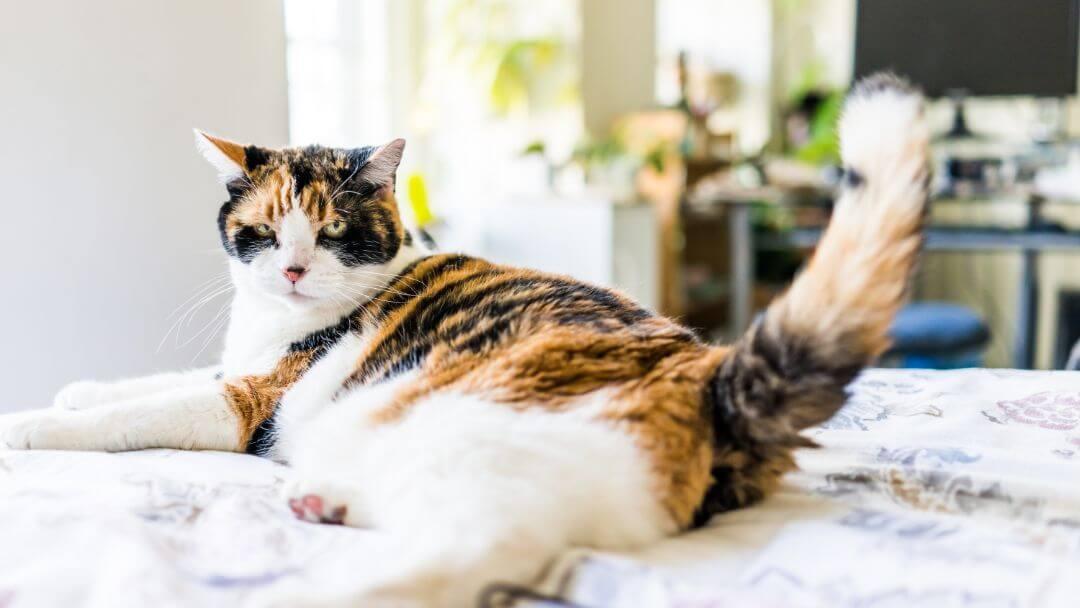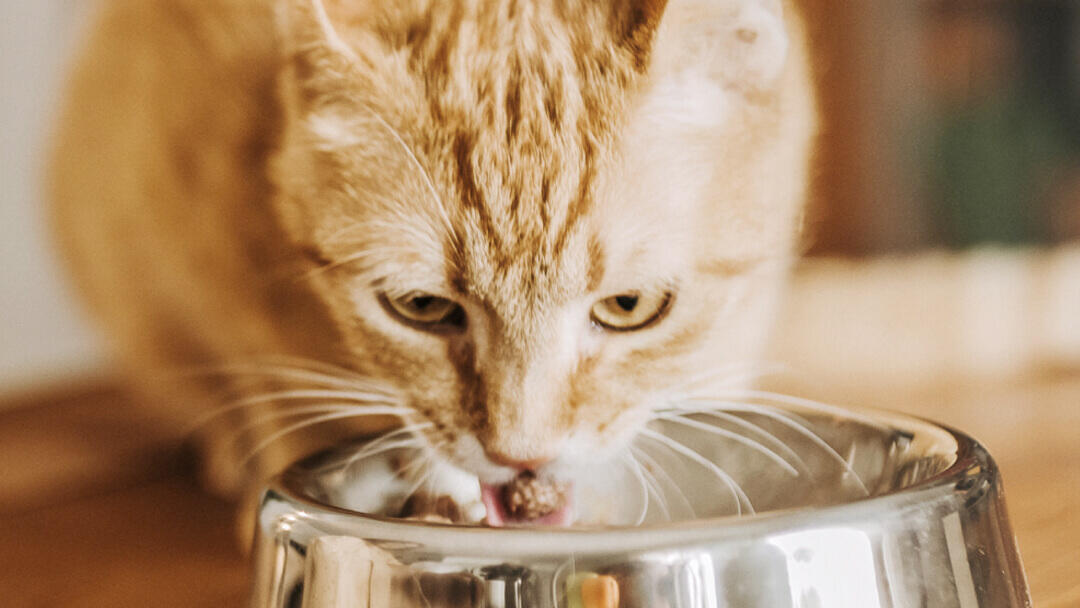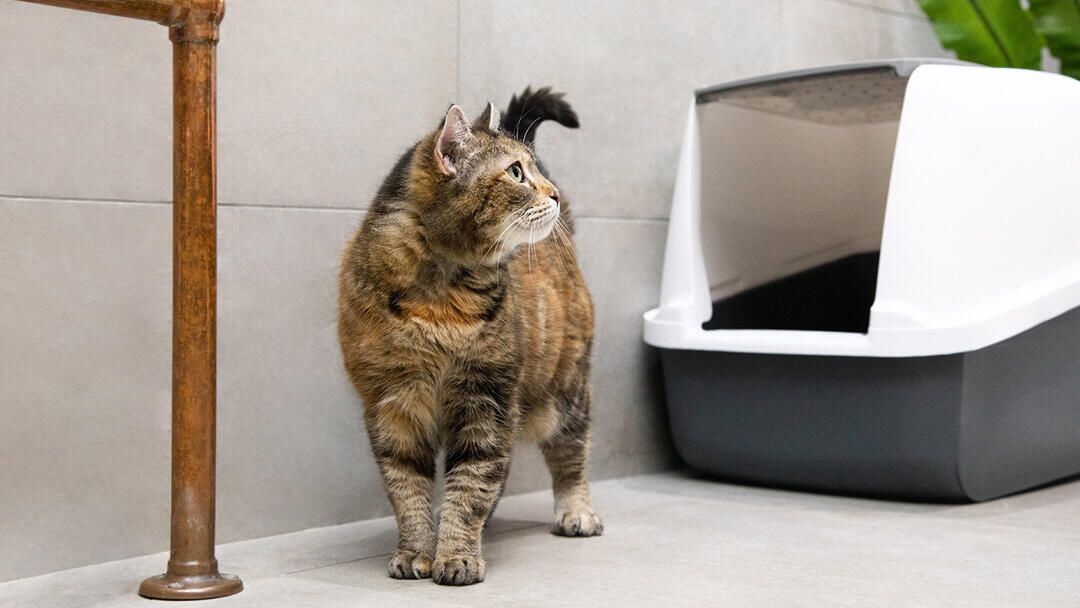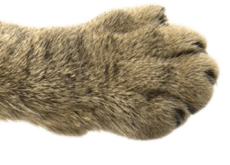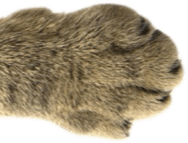
Many cat owners are concerned about keeping their feline at a good weight. Most commonly concerns are centred around obesity, but your cat losing weight unintentionally could also be a sign that something’s wrong.
Your feline may be eating well and still losing weight, they may have a reduced appetite, or they may just be avoiding food entirely. Weight loss can be a sign of a number of different health problems so, if your cat is losing weight, it’s best to contact your vet as soon as possible.
In this guide we look at the most common reasons why your cat may be losing weight as well as the other symptoms you should be on the lookout for.
Why is my cat losing weight?
There are a number of reasons why your cat might be losing weight unintentionally, ranging from psychological issues and changes at home, to underlying health conditions. Here are some of the most common causes:
1. Hyperthyroidism
More common in cats that are over seven years old, hyperthyroidism is a condition where the thyroid gland becomes enlarged and starts to produce too much thyroid hormone. Weight loss is a very common sign of hyperthyroidism in cats, alongside an increased appetite, as well as increased thirst and urination.
Their coat may also start to appear greasy and unkempt. Generally, this condition is treated with radioactive iodine, oral medications, diet or surgery.
2. Cancers
Unfortunately, cancer can be a common cause of weight loss in cats, especially in older felines. Just like in humans, cancer can occur anywhere in the body, with the most common form in cats being lymphoma. Symptoms other than weight loss may be present which can include a lack of appetite, lethargy, pain and hiding behaviours.
3. Diabetes
Diabetes in cats is a disease that is caused by the failure to produce insulin or the lack of ability to respond to it.
It can be associated with weight loss (as well as weight gain) and a change in appetite, which may also be paired with signs such as excessive drinking and urination, lethargy, urinary tract infections and sweet-smelling breath – so if your cat starts showing any of these symptoms, be sure to get in contact with your vet straight away. If your cat has this disease, feline diabetes is most commonly managed with insulin and a change in diet.
4. Gastrointestinal issues
Problems that affect your cat’s gastrointestinal (GI) tract may cause weight loss, as they can result in a reduction in appetite or they can prevent your cat from digesting food properly in order to absorb the nutrients they need. The more typical forms of gastrointestinal issues include inflammatory bowel disease, pancreatitis and cancers of the GI tract.
5. Dental issues
Dental issues and problems that affect your cat’s mouth could result in a lot of pain, which may mean your cat is not able to eat very much, or this may stop them eating altogether, and both of these situations will often result in weight loss.
Some of the dental issues frequently seen in cats include gum disease, ‘resorptive’ lesions on the teeth and even tooth fractures. Your cat may display other symptoms such as bad breath, drooling, bleeding from the mouth, trembling of the jaw, food dropping from their mouth, starting to favour soft food over hard or pawing at their mouth. If you suspect dental problems are the cause of your cat losing weight, get in contact with your vet, who will advise you on whether your cat needs to be seen.
6. Kidney disease
The kidneys are responsible for a great number of jobs within the body, including producing hormones, filtering waste products from the blood, helping to regulate blood pressure and even assisting with the production of new blood cells. So, as you can imagine, when things go wrong within the kidneys, it can cause a great number of problems, including your cat losing weight. Other signs of kidney disease in cats include increased thirst and urination, lack of appetite and lethargy. And, unfortunately kidney failure is quite common in older cats, so if you suspect your cat may have kidney disease, it’s best to book an appointment with your vet ASAP as prompt intervention often results in better outcomes.
7. Intestinal parasites
Worms can lead to your cat losing weight unintentionally, and these parasites can also result in diarrhoea, bloating and vomiting. It’s extremely important that you keep up to date with regular parasite control to help prevent issues caused by worms, especially in cats that like to hunt. And even indoor cats should still be wormed regularly, as fleas can carry and transmit worm larvae if they are accidentally carried into the house. If you’re unsure about how often you should worm your cat, it’s best to consult your vet.
When to see a vet about your cat losing weight
As the causes behind cats losing weight vary so greatly, it’s important that you take your cat to the vet as soon as possible so that, if necessary, your vet can check your cat’s weight, take a history and complete a full physical examination in order to try and identify why your cat is losing weight. Your vet will then discuss an appropriate plan going forwards with you. It’s important to bear in mind that, in lots of cases, early intervention can improve your cat’s prognosis.
Looking for more cat health advice from the Purina experts? Read our article on the importance of regular vet check-ups, next.


